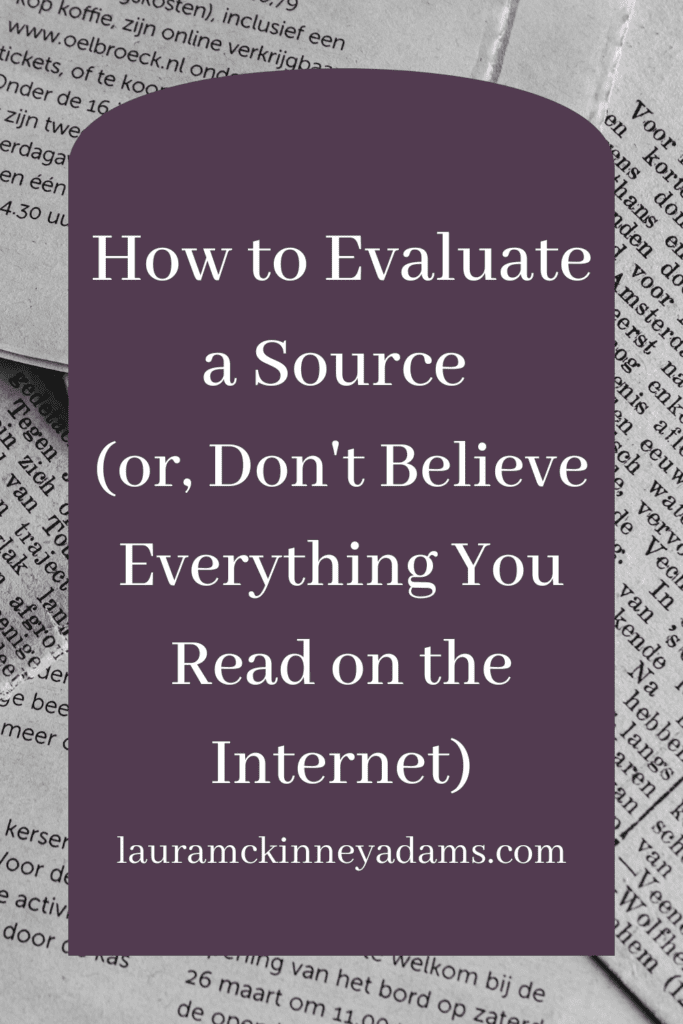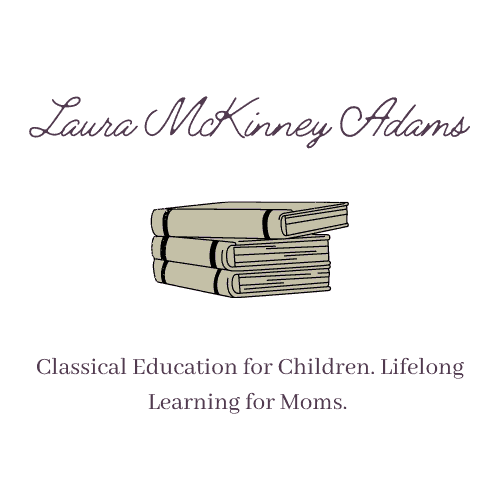This post contains affiliate links, which means I might make a small commission if you make a purchase. This does not affect your cost. Thank you!

This piece was originally written in July 2020, but the same principles apply today.
When I was in high school, I competed in debate. I loved it and believe my participation was one of the most formative experiences of my teenage life.
You will note that I did not grow up to be a lawyer. Even so, the skills I learned have continued to help me throughout my adulthood.
Not everyone likes public speaking, but everyone needs to know how to evaluate a source and think critically about it. This is a vital life skill.
Source evaluation and critical thinking skills have never been more crucial than in our current era of social media. We are dealing with an onslaught of information 24/7, and not all of it is good information.
How do we choose a good source? Here are some questions to help you decide.
- Is this source peer-reviewed? In debate land, we used to say that you could find a Ph.D. to say anything. However, it gets a lot more difficult to find a peer-reviewed source that supports an outlandish claim. Academic accountability is a good thing.
Another debate saying is, “Politicians are not experts in _______, they’re experts in getting elected.” When getting information from a politician or from a known partisan source, we should remain aware that Senator Fred might not actually be an expert in: medicine, education, etc.
2. Is this source known for promoting a certain viewpoint? The Daily Wire sells a “Leftist Tears – Hot or Cold” tumbler. No, I’m not making that up. It’s safe to say that The Daily Wire would be considered a right wing source. That doesn’t mean you shouldn’t ever listen to Ben Shapiro, but it does mean that you should be aware that he’s coming from a specific viewpoint, and that you will need to look elsewhere to find an accurate depiction of more liberal or left wing opinions.
3. Is this a primary source? When discussing a historical issue, primary sources, or those written by the people who were actually there, are most helpful.
Recently, I was interested in Alexander Hamilton’s motivations for dueling Aaron Burr, given that he had already lost one of his own children to the practice three years before. I read some of Alexander Hamilton’s letters on the National Archives website, as well as some letters written by other figures in Hamilton’s life.
To use a more modern example, if you read an article claiming that X person said Y extreme thing, take the time to look up the full context of what the person said. In context, sometimes an extreme statement will seem far less outrageous than it was originally reported.
Memes are notorious for taking things out of context and for being inflammatory. They’re great for communicating jokes, but the format doesn’t lend itself to communicating nuanced issues accurately. If you’re wondering if a certain elected official supports X policy, look up their voting record. This is all public information and gives you an objective account of what they have and have not supported so far in their career.
4. Does this author have a reason to lie? Humans lie for all sorts of reasons. They lie to make themselves look better. They lie to achieve power. They lie because they think that if they do, then they can make more money. The list could go on forever, but thinking about the possible motivations of the author is a helpful exercise. It’s even more important when the source in question is a politician and it is an election year.
5. Am I embracing this source, however flawed, because it’s telling me what I want to hear? In the spirit of transparency, I do not enjoy living through a pandemic. I don’t. I also don’t like the fact that my daughter has never lived in a world that was normal. It’s so easy to want to believe that there is no pandemic, that it’s all going to disappear on X date, that everything is fine and that I should do any risky activity that I desire, but the fact of the matter is that the pandemic is NOT over and that I still need to be cautious. It stinks. It’s the reality.
Read good sources, practice critical thinking, and stay safe!

Decluttering Your Digital Life - Laura McKinney Adams
[…] The year 2020 was the most bizarre news year of my life. Historical! Unprecedented! Are we getting a whole chapter on 2020 in history textbooks on the events of the 21st century? Time will tell, but it was a lot to live through. I knew that I needed to adapt my news consumption habits. […]